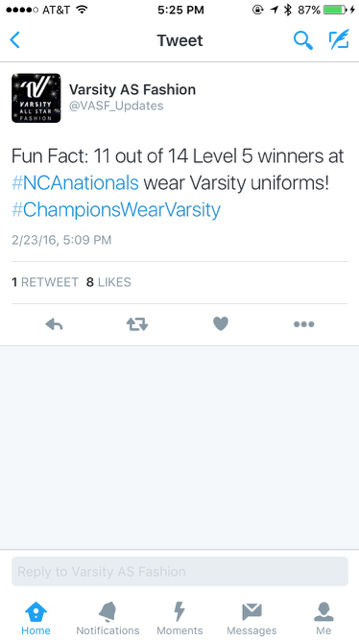catlady
Cheer Parent
- Jun 6, 2012
- 2,791
- 6,203
INC is a great magazine and focuses on start up and small businesses but, you have to kind of read between the lines with all business articles because they can pull one portion of a business and make it sound as though they have a monopoly. Frankly, I get a little peeved when I go to an event and can only buy Pepsi products but, it is a very common practice in contracts and those companies are paying extremely high dollar to be at high profile events. I applaud Nfinity and Rebel for setting up shop outside the doors but, don't be fooled, from a business standpoint they are maximizing their profits. They don't have to pay the high dollar per square footage that Varsity is within those Convention Center walls but, they get the business off of their coat tails. Any small store owner in a mall will tell you they are VERY dependent on their anchors and once those anchors are gone or no longer desirable, they are out of business. Varsity is actually very key in the success of these smaller start ups and while the little guy may play them off as the big bad wolf, think about the customer traffic they received that they never would have, otherwise.


